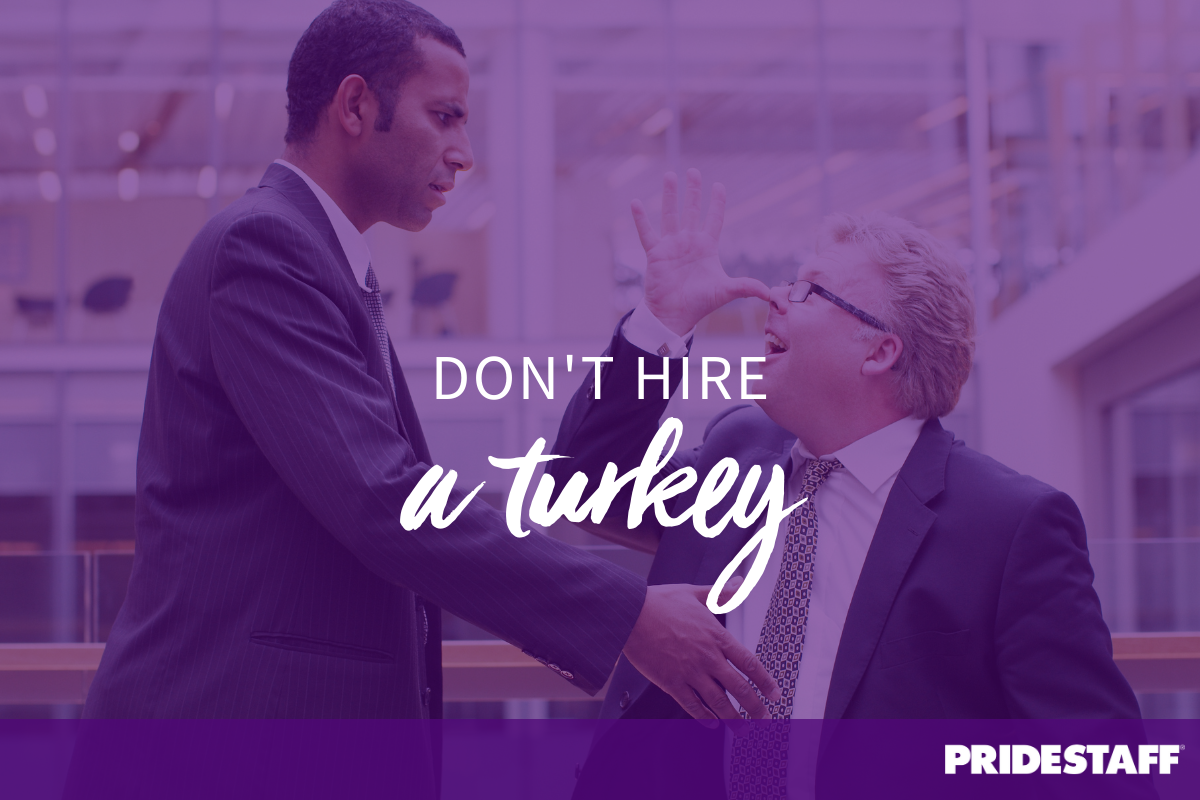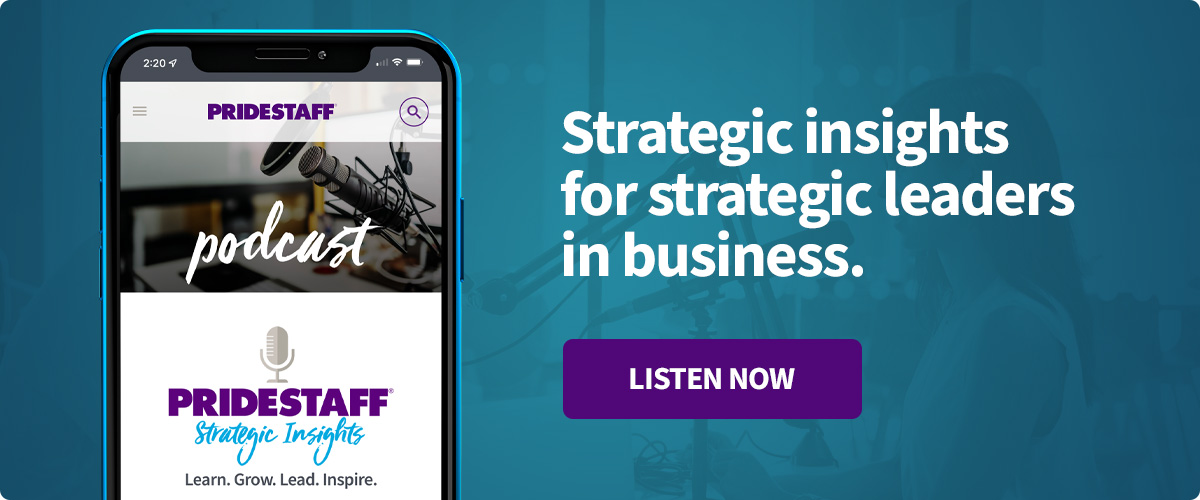Don’t Hire a Turkey: Avoid Bad Hires At All Costs!

Can your business afford to hire a slacker, job hopper or toxic employee?
No way! The U.S. Department of Labor estimates it can cost, on average, 30 percent of a new hire’s annual salary to replace them. Those costs increase the higher up in the organization the turnover occurs.
The cost of finding a replacement hire isn’t the only factor, either. There are intangible variables like disruption to projects, negative impact on team performance, weakened morale, lost customers, and a weakened employer brand to consider, too. Simply put, a bad hire is expensive, every time.
Turkeys belong on your Thanksgiving table – not your team.
So, how can you keep from hiring them? While slackers, job hoppers and toxic employees don’t have feathers or wattles, they frequently say and do things that signal there’s trouble ahead. With a trained eye, you can spot red flags during the job interview, and prevent bad hires that could cost your business thousands of dollars.
Telltale signs that your candidate won’t be a superstar:
Lack of professionalism. While a gainfully employed candidate may only be accessible outside business hours, be wary of people who:
- Don’t promptly return your calls or emails.
- Are not polite to your staff.
- Show up late or unprepared for their interview.
Candidates who are unprofessional or inconsiderate during the hiring process are likely to behave the same way once hired. Here are a few other undesirable personality attributes to watch out for when interviewing.
Disparaging former employers. When your candidate speaks about their work experience, take note of how tactful and respectful they are. Even if an individual didn’t get along with their boss, they should still show discretion when referencing them – and never blame others for their own failings.
The wrong kind of job-hopping. In today’s job market, job hopping can indicate that your candidate is a rising star or just plain fickle. How can you tell the difference? If positions show growth in job responsibility and a logical career progression, your candidate may simply be upwardly mobile. However, if your interviewee can’t provide a reasonable explanation as to why they changed jobs so often, or becomes evasive when you question them about their career path, consider yourself warned.
Little understanding of the role or your company. Any candidate who wants to be taken seriously and stand out will do their homework. On the other hand, if it’s obvious the interviewee hasn’t researched your products/services or prepared relevant questions to ask you, chances are they won’t put extra effort into their work, either (and who wants to hire someone like that?).
Asking all the wrong questions. How soon can I take a vacation? Will I have my own office? Yikes. Intelligent, respectful job seekers understand interview “rules of engagement.” If your candidate’s queries make you cringe or question their motivations, trust your gut.
No career plan. When asked, can your interviewee outline their goals for the next three to five years, or do they look like a deer in the headlights? If a candidate can’t describe their dream career or the steps they’d need to take to get there, it may mean they don’t plan ahead (which doesn’t bode well for growth or job tenure).
How can you prevent a bad hire?
We’ve seen how bad hires can negatively impact your company, and we’ve learned about some of the potential signs of a bad hire. How can your organization avoid the cost, morale drain, and hassle of a bad hire in the first place?
Here are some hiring tips to help you avoid a bad hire:
- Don’t rush. Many companies make a bad hire because they feel they need to hire someone quickly. And while you can’t have an open position stay open forever, it’s important to weigh the benefits of filling that position with the benefits of taking your time and making the right hire the first time.
- Use a standardized interview process. It’s one of the top employer interview tips: use a standardized interview process. It ensures consistency across all candidates and allows for appropriate evaluation of both job skills and culture fit.
- Improve your onboarding. A sub-par onboarding program makes it much more likely you’ll lose a new hire within their first year. Onboarding needs to be more than a week-long orientation; new hires should be guided through their initial weeks and then check-ins should be scheduled in regular intervals.
- Convey your culture. When you accurately portray your company culture, you have an easier time attracting talent that really wants to be there. Make sure your culture comes across on your website, through social media channels, and in branding materials.
Interviewing too many turkeys? We can help you hire!
Hire smarter with PrideStaff. Our On Target fulfillment process eliminates the guesswork, chance and inconsistency in staffing – and ensures you receive better quality candidates, each and every time. Contact your local PrideStaff office to learn more.




